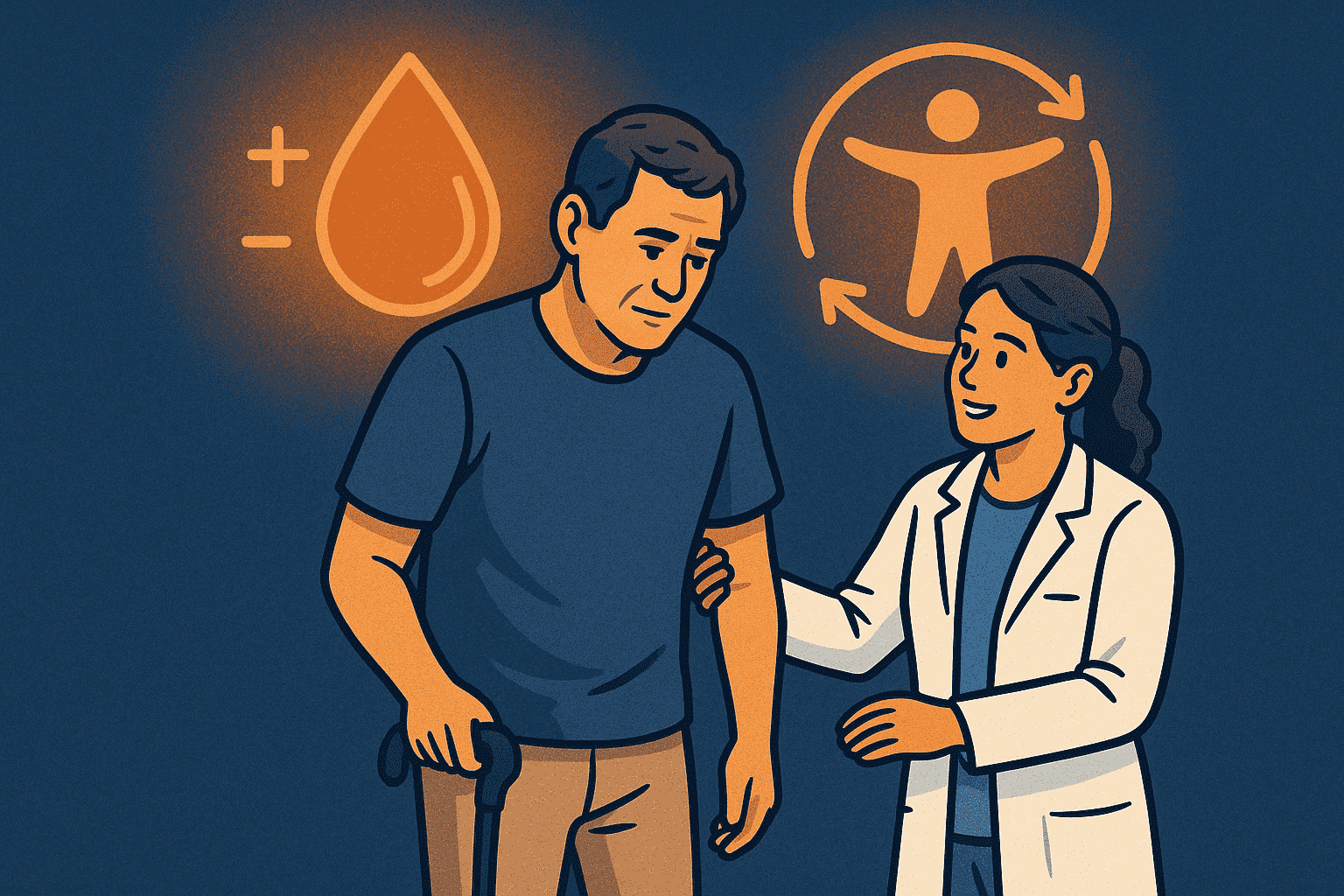Diabetes mellitus, is a group of metabolic disorders characterized by high glucose levels (sugar) in the blood. It occurs when the pancreas fails to produce enough insulin or when the body is unable to use the insulin it has produced.
Diabetes is classified into 3 Types:
- Type 1 Diabetes: It is an autoimmune condition in which the body by itself attacks insulin-producing cells in the pancreas.
- Type 2 Diabetes: It is the most common type of diabetes, results in insulin resistance and often relates to lifestyle factors.
Gestational Diabetes: It occurs during pregnancy and most probably resolves after the delivery, but may increase the risk of growing type 2 diabetes in life later.
Early Sign & Symptoms
Detecting it at an early stage is important in managing diabetes and preventing complications. Its symptoms include:
- Immense Thirst
- Pollakiuria
- Speedy weight reduction
- Fatigue
- Delayed Healing
- Blurred vision
Risk Factors
There are several risk factors that increase the chance of developing diabetes:
- Lack of physical activity
- Poor Food Habits
- Heavy weight or Obesity
- Family history of diabetes
- High BP
- High Cholesterol level
- Age (especially over 40)
Diabetes Awareness Importance
Diabetes awareness plays a crucial role in preventing and managing diabetes. Public awareness through community screenings, campaigns and support groups help to spread knowledge about the disease. As soon as people understand the risk factors and identify early symptoms, then they are more likely to seek medical advice and sustain healthier lifestyles.
Lifestyle Modifications in Diabetes Prevention and Management
Adopting a healthy lifestyle is important for diabetes prevention and management. So, here are the key areas to be focused on:
- Balanced Diet:
- Have more intake of whole grains, fruits, and vegetables.
- Choose proteins and healthy fats.
- Restrict sugary drinks and processed foods.
- Monitoring the carbohydrate intake.
- Regular Physical Activity:
- Try at least 30 minutes of light aerobic exercise per day.
- Include strength training exercises twice a week.
- Activities to be adhered to are walking, cycling, swimming, and yoga.
- Weight Management:
- Achieving and maintaining a healthy weight reduces the risk of type 2 diabetes.
- Stress Management:
- Stress can elevate blood sugar level. So, to reduce its level practice relaxation techniques like meditation, deep breathing, or mindfulness.
- Regular Health Check-ups:
- Monitor your blood glucose levels, B.P, and cholesterol levels regularly.
- Early intervention can prevent or delay complications.
Physiotherapy Role in Diabetes Management
Physiotherapy plays an important role in both prevention and management of diabetes. Advanced physiotherapy techniques and therapeutic exercises, help individuals to manage blood glucose levels, mobility, and reduce the risk of complications.
- Exercises:
- Aerobic exercises (e.g., walking, cycling)
- Resistance training
- Flexibility and balance exercises
- Improving Insulin Sensitivity: Regular physical activity under guidance of a physiotherapist can improve the body’s response to insulin, to regulate blood sugar levels.
- Neuropathy Management: Diabetic neuropathy shows symptoms like Pain, tingling, numbness and weakness, especially in the feet and legs. Physiotherapy treatment helps:
- Improve circulation
- Maintain muscle strength
- Enhance coordination and balance
- Preventing and Managing Complications: Physiotherapy management to avoid complications like foot ulcers, joint stiffness, and cardiovascular issues through:
- Functional mobility training
- Gait training
- Postural correction
- Pain Management and Rehabilitation: Individuals suffering from musculoskeletal pain or recovering from surgery, physiotherapy provides pain relief and accelerates recovery through:
- Manual therapy
- Electrotherapy
- Customized rehab programs
Community Involvement and Support Systems
Supportive surroundings from family, friends, and community groups can make a significant difference in managing diabetes. Awareness programs, counselling and peer group support provides emotional encouragement and practical advice.
Governments and healthcare organizations also play a vital role in promoting diabetes awareness through public policies, research funding and access to affordable healthcare services, including physiotherapy.
By:- Dr. Aditee Bhardwaj
Assistant Professor, Department of physiotherapy

